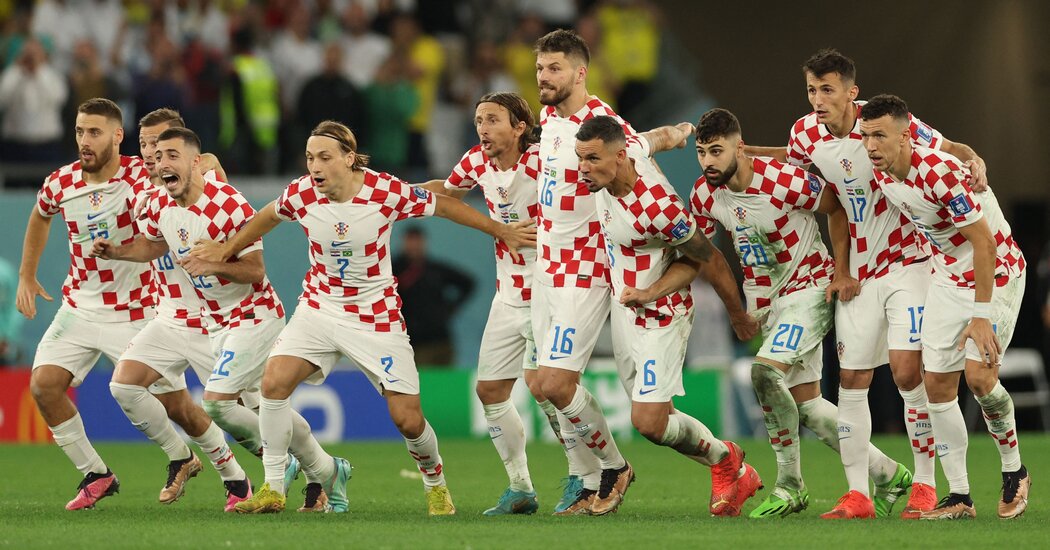Croatia, by contrast, has not only become a fixture at these events, but emerged as a genuine force within them, a squad capable — as the 1998 team was — of not just mustering a single impressive campaign but returning four years later, with a markedly different set of players, and doing it all again. “We have 18 new players,” Sosa, the defender, said of this year’s team. “Many of them are playing in the World Cup for the first time.” It has made no difference at all.
That is testament not just to the steady flow of players emerging from the country’s academies — “I don’t know if it is genetics, environment or geography,” Boban said, “but we just have so much talent” — but to the culture that has been created within the national team, too.
Almost every young player in Croatia spends time early in their career at one of Croatia’s two great club teams, Dinamo Zagreb and Hajduk Split, meaning new arrivals to the senior squad are generally greeted by friendly faces. The country’s slogan for the tournament, “family,” is more than just a bit of marketing spiel.
There is no firm hierarchy among the team; even relative neophytes are encouraged to make their voices heard. Dalic, the coach, takes a deliberately low-key approach to discipline, trusting the likes of Modric and his fellow veterans to lead by example, to ensure that their personal standards are met, to pass on their wisdom, to make clear to everyone just what is expected.
Those expectations are so high, Sosa said, that the team has adopted a policy of “not celebrating goals, just celebrating wins.” It is this, Boban said, that is the final ingredient in Croatia’s success: Outside its borders, it may look and feel like an underdog, but that is not quite how it sees itself.
“I was speaking with one of my friends, Prosinecki or Slaven Bilic, about this a few months ago,” Boban said. “When we played, we were always favorites for our people. When we play Germany, the people think we have to win. ‘Of course we should beat Germany!’
“We play Italy? ‘Italy is not so talented.’ We play Brazil? ‘Yes, but we are better than them.’ It is normal that they are so proud. I don’t know how this became in our culture, but this is Croatia. You feel it, and that pressure makes you better. It makes you more ambitious.”
Now, for the second time in four years, Croatia stands on the brink of doing the impossible. Victory over Argentina would take the country to a second straight World Cup final. Once again, at the World Cup, the team that refuses to be beaten stands ready to make it all the way to the end.
Tariq Panja and James Wagner contributed reporting.
Sumber: www.nytimes.com
